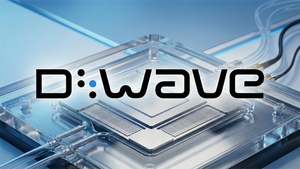
The global Artificial Intelligence (AI) sector is in the midst of an unparalleled "AI boom," characterized by a torrent of investment, rapid technological advancement, and a palpable shift in market dynamics. At the forefront of this financial revolution are AI-related Exchange-Traded Funds (ETFs), which have emerged as a crucial barometer for investor sentiment and a key indicator of the sector's robust growth. A recent report by Fortune highlighting an AI ETF "handily beating the S&P 500" underscores the potent allure of AI-focused financial products and the conviction among investors that AI is not merely a fleeting trend but a foundational shift poised to redefine industries and economies worldwide. This surge in capital is not just funding innovation; it is actively shaping the competitive landscape, accelerating the development of groundbreaking technologies, and raising both immense opportunities and significant challenges for the future.
AI ETFs: The Pulse of a Trillion-Dollar Transformation
AI-related Exchange-Traded Funds (ETFs) are proving to be a powerful mechanism for investors to gain diversified exposure to the rapidly expanding artificial intelligence sector, with many funds demonstrating remarkable outperformance against broader market indices. These ETFs aggregate investments into a curated basket of companies involved in various facets of AI, ranging from core technology developers in machine learning, robotics, and natural language processing, to businesses leveraging AI for operational enhancement, and even those providing the essential hardware infrastructure like Graphics Processing Units (GPUs).
The performance of these funds is a vivid testament to the ongoing AI boom. The Nasdaq CTA Artificial Intelligence index, a benchmark for many AI ETFs, has posted impressive gains, including a +36.41% return over the past year and a staggering +112.02% over five years as of October 2025. This strong showing is exemplified by funds like the Global X Artificial Intelligence and Technology ETF (NASDAQ: AIQ), which has been specifically cited for its ability to significantly outpace the S&P 500. Its diversified portfolio often includes major players such as NVIDIA (NASDAQ: NVDA), Meta Platforms (NASDAQ: META), Amazon (NASDAQ: AMZN), Oracle (NYSE: ORCL), and Broadcom (NASDAQ: AVGO), all of whom are central to the AI value chain.
The selection criteria for AI ETFs vary, but generally involve tracking specialized AI and robotics indices, thematic focuses on AI development and application, or active management strategies. Many funds maintain significant exposure to mega-cap technology companies that are also pivotal AI innovators, such as Microsoft (NASDAQ: MSFT) for its AI software and cloud services, and Alphabet (NASDAQ: GOOGL) for its extensive AI research and integration. While some ETFs utilize AI algorithms for their own stock selection, a study has shown that funds investing in companies doing AI tend to outperform those using AI for investment decisions, suggesting that the core technological advancement remains the primary driver of returns. The sheer volume of capital flowing into these funds, with over a third of AI-focused ETFs launched in 2024 alone and total assets reaching $4.5 billion, underscores the widespread belief in AI's transformative economic impact.
Corporate Juggernauts and Agile Innovators: Reshaping the AI Landscape
The robust investment trends in AI, particularly channeled through ETFs, are fundamentally reshaping the competitive landscape for AI companies, tech giants, and startups alike. The "AI boom" is fueling unprecedented growth while simultaneously creating new strategic imperatives, potential disruptions, and shifts in market positioning.
Tech giants are at the vanguard of this transformation, leveraging their vast resources, established platforms, and extensive data reservoirs to integrate AI across their services. Companies like Microsoft (NASDAQ: MSFT), Alphabet (NASDAQ: GOOGL), Amazon (NASDAQ: AMZN), and Meta Platforms (NASDAQ: META) are making massive capital expenditures in AI research, infrastructure, and strategic partnerships. Microsoft, for instance, projects a 45% growth in capital expenditure for fiscal year 2026 to boost its AI capacity by over 80%. These companies benefit from network effects and integrated ecosystems, allowing them to rapidly scale AI solutions and bundle AI tools into consumer-facing applications, often solidifying their market dominance. Many also engage in "pseudo-acquisitions," investing in AI startups and licensing their technology, thereby absorbing innovation without full buyouts.
Hardware providers and pure-play AI companies are also experiencing an unparalleled surge. NVIDIA (NASDAQ: NVDA) remains a dominant force in AI GPUs and accelerators, with its CUDA platform becoming an industry standard. Other chip manufacturers like Advanced Micro Devices (NASDAQ: AMD) and Broadcom (NASDAQ: AVGO) are expanding their AI offerings, positioning themselves as critical enablers of the "silicon supercycle" required for training and deploying complex AI models. These companies are frequent and significant holdings in leading AI ETFs, underscoring their indispensable role in the AI ecosystem.
While AI startups are hotbeds of innovation, they face significant hurdles, including the exorbitant cost of computing resources and a fierce talent shortage. Many encounter a "supply vs. platform dilemma," where their groundbreaking technology risks being commoditized or absorbed by larger tech platforms. Strategic partnerships with tech giants, while offering vital funding, often come at the cost of independence. The intense competition among major AI labs like OpenAI, Google DeepMind, and Anthropic is driving rapid advancements, but also raising concerns about the concentration of resources and potential monopolization, as high training costs create substantial barriers to entry for smaller players.
The Broader Canvas: AI's Societal Tapestry and Echoes of Past Booms
The current investment fervor in the AI sector, vividly reflected in the performance of AI ETFs, signifies more than just a technological advancement; it represents a profound societal and economic transformation. This "AI boom" is deeply interwoven with broader AI trends, promising unprecedented productivity gains, while also raising critical concerns about market stability, ethical implications, and its impact on the future of work.
This era is often likened to an "AI spring," a period of sustained and rapid progression in AI that contrasts sharply with previous "AI winters" marked by disillusionment and funding cuts. Unlike the dot-com bubble of the late 1990s, which saw many internet companies with nascent business models and speculative valuations, today's AI leaders are often established, profitable entities with strong earnings and a clear path to integrating AI into their core operations. While concerns about an "AI bubble" persist due to rapidly increasing valuations and massive capital expenditures on infrastructure with sometimes unproven returns, many experts argue that AI represents a foundational technological shift impacting nearly every industry, making its growth more sustainable.
The societal and economic impacts are projected to be immense. AI is widely expected to be a significant driver of productivity and economic growth, potentially adding trillions to the global economy by 2030 through enhanced efficiency, improved decision-making, and the creation of entirely new products and services. However, this transformation also carries potential risks. AI could significantly reshape the labor market, affecting nearly 40% of jobs globally. While it will create new roles requiring specialized skills, it also has the potential to automate routine tasks, leading to job displacement and raising concerns about widening income inequality and the creation of "super firms" that could exacerbate economic disparities.
Ethical considerations are paramount. The integration of AI into critical functions, including investment decision-making, raises questions about market fairness, data privacy, and the potential for algorithmic bias. The "black box" nature of complex AI models poses challenges for transparency and accountability, demanding robust regulatory frameworks and a focus on explainable AI (XAI). As AI systems become more powerful, concerns about misinformation, deepfakes, and the responsible use of autonomous systems will intensify, necessitating a delicate balance between fostering innovation and ensuring public trust and safety.
The Horizon: Agentic AI, Custom Silicon, and Ethical Imperatives
The trajectory of the AI sector suggests an acceleration of advancements, with both near-term breakthroughs and long-term transformative developments on the horizon. Investment trends will continue to fuel these innovations, but with an increasing emphasis on tangible returns and responsible deployment.
In the near term (1-5 years), expect significant refinement of Large Language Models (LLMs) to deliver greater enterprise value, automating complex tasks and generating sophisticated reports. The development of "Agentic AI" systems, capable of autonomous planning and execution of multi-step workflows, will be a key focus. Multimodal AI, integrating text, images, and video for richer interactions, will become more prevalent. Crucially, the demand for specialized hardware will intensify, driving investments in custom silicon, bitnet models, and advanced packaging to overcome computational limits and reduce operational costs. Organizations will increasingly train customized AI models using proprietary datasets, potentially outperforming general-purpose LLMs in specific applications.
Looking further ahead, the long-term vision includes the emergence of self-learning AI systems that adapt and improve without constant human intervention, and potentially the development of a global AI network for shared knowledge. Some experts even anticipate that generative AI will accelerate the path towards Artificial General Intelligence (AGI), where AI can perform any human task, though this prospect also raises existential questions. Potential applications span healthcare (personalized medicine, drug discovery), finance (fraud detection, robo-advisors), retail (personalized experiences, inventory optimization), manufacturing (predictive maintenance), and cybersecurity (real-time threat detection).
However, significant challenges remain. Regulatory frameworks are rapidly evolving, with global efforts like the EU AI Act (effective 2025) setting precedents for risk-based classification and compliance. Addressing ethical concerns like bias, transparency, data privacy, and the potential for job displacement will be critical for sustainable growth. Technically, challenges include ensuring data quality, overcoming the projected shortage of public data for training large models (potentially by 2026), and mitigating security risks associated with increasingly powerful AI. Experts predict that while the overall AI boom is sustainable, there will be increased scrutiny on the return on investment (ROI) for AI projects, with some enterprise AI investments potentially deferred until companies see measurable financial benefits.
A Pivotal Moment: Navigating the AI Revolution
The current investment landscape in the AI sector, with AI-related ETFs serving as a vibrant indicator, marks a pivotal moment in technological history. The "AI boom" is not merely an incremental step but a profound leap, reshaping global economies, industries, and the very fabric of society.
This period stands as a testament to AI's transformative power, distinct from previous technological bubbles due to its foundational nature, the robust financial health of many leading players, and the tangible applications emerging across diverse sectors. Its long-term impact is expected to be as significant as past industrial and information revolutions, promising vast economic growth, enhanced productivity, and entirely new frontiers of discovery and capability. However, this progress is inextricably linked with the imperative to address ethical concerns, establish robust governance, and navigate the complex societal shifts, particularly in the labor market.
In the coming weeks and months, investors and observers should closely watch the capital expenditure reports from major tech companies like Microsoft (NASDAQ: MSFT), Alphabet (NASDAQ: GOOGL), and Amazon (NASDAQ: AMZN), as sustained high investment in AI infrastructure will signal continued confidence. The performance and innovation within the semiconductor industry, crucial for powering AI, will remain a critical barometer. Furthermore, advancements in agentic AI and multimodal AI, along with the emergence of more specialized AI applications, will highlight the evolving technological frontier. Finally, the ongoing development of global AI regulations and the industry's commitment to responsible AI practices will be crucial determinants of AI's sustainable and beneficial integration into society. The AI revolution is here, and its unfolding story will define the next era of human and technological progress.
This content is intended for informational purposes only and represents analysis of current AI developments.
TokenRing AI delivers enterprise-grade solutions for multi-agent AI workflow orchestration, AI-powered development tools, and seamless remote collaboration platforms.
For more information, visit https://www.tokenring.ai/.





